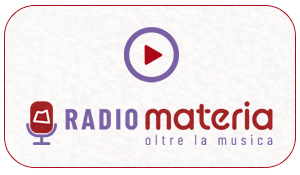Too much medicine: nebuliser, antibiotics and antipyretics
Too much medicine is given to children, which often is not necessary or too strong for them: here is the paediatricians’ advice on medicine usage during childhood, between fears and myths to debunk

If the cases in which children aren’t given the medicine prescribed by the doctor out of fear are rare, in most cases the Italian children population faces the exact opposite problem: children take too much medicine, which, in most cases is not necessary or too strong for them, especially antibiotics and remedies against respiratory problems. This was reported by the Italian Pharmaceutical Agency (AIFA), to which the paediatricians of the Bambino Gesù hospital in Rome answered with the latest issue of “A scuola di Salute”, a small guide to the correct and informed usage of medicine, in order to challenge fears and old myths.
A child is not a baby adult
Too often children are given, with a lower dosage, medicines prescribed for adults (off-label prescription). Children, however, are not baby adults and the medicine, which had been clinically studied on the adult population and therefore authorised only for adults, may not be suitable for children, which have a different metabolism and weaknesses.
A baby is not a school-aged child
For the same reasons, it happens that a child, who two years prior was cured with a certain drug, may undergo the same therapy without checking beforehand the diagnosis and the dosage with the paediatrician. This is also dangerous, because children, during their growth experience different development phases, each one of them marked by variations in the way drugs are absorbed and metabolised.
Antibiotics are not antipyretics
Among the most common mistakes, independently giving antibiotics to a child in case of a fever is one of them. However, the appropriate drugs for treating a fever are antipyretics (paracetamol and ibuprofen), which also act as painkillers and anti-inflammatory drugs, whose dosage depends on the weight of the child.
Antibiotics, on the other hand, are used for tackling bacterial infections; however they are completely ineffective against viral infections. The symptoms can be similar (fever, fatigue, diffused pain), but paediatricians have the suitable equipment and knowledge to differentiate the cases, therefore consulting a doctor is essential, to decide if the antibiotics are necessary and for the dosage and the treatment, to which the patient must comply once the treatment has begun.
Nebuliser
Another common trend is to treat every respiratory problem with the nebuliser. However, it is ineffective against colds, ear infections and coughs, unless they are caused by a bronchospasm (bronchial constriction) or severe laryngitis. The nebuliser can be used in case of asthma, to tackle an asthma attack or to prevent it, if the paediatrician considers it appropriate.
Pharmacovigilance
During the administration of drugs, it is important that the effectiveness and the potential side effects (of which everyone must be aware of) are constantly monitored.
TAG ARTICOLO
La community di VareseNews
Loro ne fanno già parte
Ultimi commenti
Felice su Niente viaggio nella terra di Babbo Natale: salta il volo Malpensa - Rovaniemi, duecento persone a terra
Felice su Capodanno, il Comune di Varese pubblica l'ordinanza che vieta botti, petardi e fuochi d’artificio
MannyC su Polveri sottili in riduzione in quasi tutta la Lombardia, Varese guida la classifica virtuosa di Legambiente
lenny54 su Il richiamo alla pace e ai valori della Repubblica nel discorso del Presidente Sergio Mattarella
giro su Capodanno, il Comune di Varese pubblica l'ordinanza che vieta botti, petardi e fuochi d’artificio
Felice su Amazon sospende le consegne con i droni in Italia
















Accedi o registrati per commentare questo articolo.
L'email è richiesta ma non verrà mostrata ai visitatori. Il contenuto di questo commento esprime il pensiero dell'autore e non rappresenta la linea editoriale di VareseNews.it, che rimane autonoma e indipendente. I messaggi inclusi nei commenti non sono testi giornalistici, ma post inviati dai singoli lettori che possono essere automaticamente pubblicati senza filtro preventivo. I commenti che includano uno o più link a siti esterni verranno rimossi in automatico dal sistema.